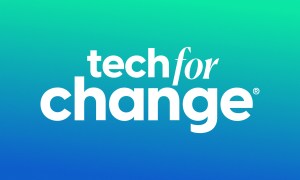
Elon Musk’s Neuralink company has performed its first implant in a human brain as it develops a technology aimed at helping those with severe paralysis.
In a post on social media sharing the update, Musk said: “The first human received an implant from Neuralink yesterday and is recovering well.” He added that “initial results show promising neuron spike detection,” which is necessary for commands to travel from the brain to the body.
In another post shared a short while later, Musk said of the technology: “Imagine if Stephen Hawking could communicate faster than a speed typist or auctioneer. That is the goal.” He added that the company’s first product would be called “Telepathy.”
The update comes four months after Neuralink put out its first call for human volunteers to test its experimental N1 computer interface.
Neuralink’s first in-human study, called PRIME (Precise Robotically Implanted Brain-Computer Interface), encouraged interest from those with quadriplegia from cervical spinal cord injury or amyotrophic lateral sclerosis (ALS). People putting themselves forward also had to be at least 22 years old and have a consistent and reliable caregiver.
Neuralink said last year that during the study, a robot would be used to surgically place the implant’s “ultra-fine and flexible threads in a region of the brain that controls movement intention,” adding that once in place, the implant is “cosmetically invisible and is intended to record and transmit brain signals wirelessly to an app that decodes movement intention.”
The main goal of the PRIME study is to evaluate the safety of the implant and the effectiveness of the surgical robot performing it. It will also evaluate the capabilities of the interface, which Neuralink claims will allow people to control electronic devices with their thoughts. A person with paralysis, for example, may be able to control their handset merely by imagining their hand movements. Musk has even suggested that the technology could one day equip humans with “superhuman cognition.”
In Neuralink’s own words, its goal is to “create a generalized brain interface to restore autonomy to those with unmet medical needs today and unlock human potential tomorrow.”
The U.S. Food and Drug Administration last year gave Neuralink the green light to carry out its first human trial following similar tests on animals.
Neuralink was founded by Musk and a small team of scientists and engineers in 2016. It’s not the first company to explore this kind of technology. BrainGate, for example, has enabled a man with paralysis to communicate his thoughts by converting his imagined handwriting into text.


